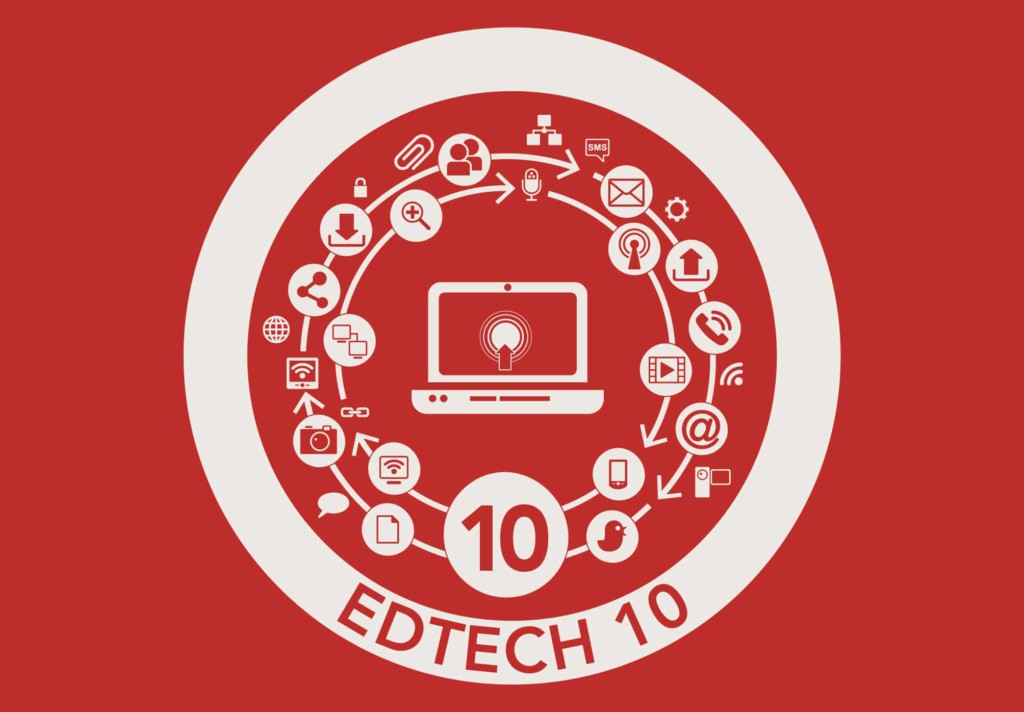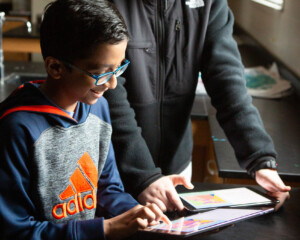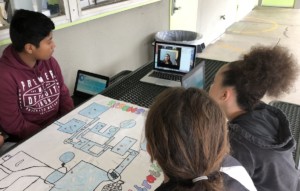EdTech 10: “A” is for Access

The letter of the week is “A” for Access, and this week we noticed meaningful movement in expanding it! Check out this week’s top ten edtech news stories that reveal student access to high-quality learning opportunities is on the rise.
Policy & Progress
1. Wi-Fi For All. Last week we published a special #Wifi4Schools edition of EdTech 10 on the eve of an important FCC (@FCC) vote. We are excited to report that the FCC adopted the E-rate modernization order, taking a critical first step toward expanded access to Wi-Fi networks in schools and libraries.
2. Bring on Course Access. This week ExcelinEd (@ExcelinEd), through the Digital Learning Now (@DigLearningNow) initiative and in partnership with the EducationCounsel (@EdCounselDC), released a research paper entitled, “Leading in an Era of Change, Making the Most of State Course Access Opportunities.” The paper highlights key policy developments and lessons learned from states that have adopted Course Access (i.e., part time online learning) programs, including Louisiana, Texas, Michigan, Florida, and Utah. Check out our coverage of the report’s findings and the Bringing Course Access To All Students infographic.
3. Welcome to the Data Era. We’ve been thinking about next-gen learning–what Andy Calkins calls a combo on competency-based and blended. Also, what an accountability system could look like once most schools have left data scarcity and over reliance on giant summative tests and entered the age of data abundance where desecrate assessments (often collected in the background of a learning experience) meet specific needs. For a group of Ohio educators, Tom outlined next-gen accountability for schools, teachers, students, providers and more.
Dollars & Deals
4. Looking for Results. WestEd’s (@WestEd) Science, Technology, Engineering, & Mathematics (STEM) program won a $3 million grant from the USDOE “to evaluate the effectiveness of Khan Academy’s (@KhanAcademy) resources for maximizing community college students’ mathematics achievement.” During the 2015/16 school year, a randomized controlled trial will research the results from Algebra I instructors who have never previously used Khan Academy in a blended learning environment.
5. Planting the Seed. OpenEd (@OpenEdio) announced $2 million in seed funding from PivotNorth Capital (@PivotNorth) to build out additional capabilities and apps for resource-oriented education. OpenEd claims the largest Common Core catalog of open resources with some free and premium tools to with it.
6. Going Big. Desire2Learn (@Desire2Learn) publicly relaunched its learning platform Brightspace (@Brightspace) which incorporates four acquisitions and content from McGraw-Hill, Cengage, Pearson, Macmillan and more.
Summer Reading List
7. For Your Reading Pleasure. We recommend adding these two new reports from New America Foundation (@NewAmerica) to your summer reading list. In Beyond “Subprime Learning”: Accelerating Progress in Early Education, the authors urge increased policymaker attention on early education. New America points to two approaches that will spur the most impact towards that goal: “streamlining programs, standards, and eligibility requirements and tapping into sources for predictable, sustainable, and increased public funding.”
Anne Hyslop (@afhylsop) makes The Case Against Exit Exams arguing that as grad requirements they’ll inevitably be watered down and not real college ready tests. Digital Learning Now (@DigLearningNow) suggests end of course exams available on demand as a better solution.
Smart Cities
8. Letting Students Lead. The forthcoming Smart Cities book from Tom Vander Ark (@tvanderark), will feature the contributions of about 60 thought leaders around the concept of innovation in education. “If we really want to innovate in education, we must let go of our assumptions about how schools work, and open up to what really understanding our students can teach us about what we should be creating.” That’s just a small sampling of what IDEO’s (@IDEO) Sandy Speicher (@SandySpeicher) has to say about Design Thinking: A Human-Centered Approach to Innovation in Education.
Another amazing contributor, Esther Wojcicki (@EstherWojicicki), describes what we’re pretty sure is the best journalism program in America and how it contributes to an entrepreneurial mindset.
Higher, Deeper, Further, Faster Learning
9. Unbundling 2.0. Michael Horn’s (@MichaelBHorn) latest Forbes (@Forbes) post – Unbundling And Re-bundling In Higher Education considers what happens beyond the “unbundling” of components like courses, content and credentialing by exploring potential “rebundled” sub-components like coaching, mentoring, learning plans and employer connections. With an eye toward improved integration of critical student success factors like these, Horn concludes “Whether these are the right integrations, I don’t know, but it’s clear that for us to transform higher education into a more affordable experience that can personalize for different student needs and bring about greater lifelong success, just thinking about how higher education will unbundle won’t be enough.”
10. Minding the Gap. In a pretty cool partnership to bridge the gap between education and employment, MOOC platform edX (@EdXonline) announced it will work with Saudi Arabia’s Ministry of Labor to create a MOOC portal created exclusively for Arab audiences. The pilot program will kick off this fall and will target women, youth, rural citizens and learners with disabilities.
ExcelinEd is a Getting Smart Advocacy Partner.







0 Comments
Leave a Comment
Your email address will not be published. All fields are required.